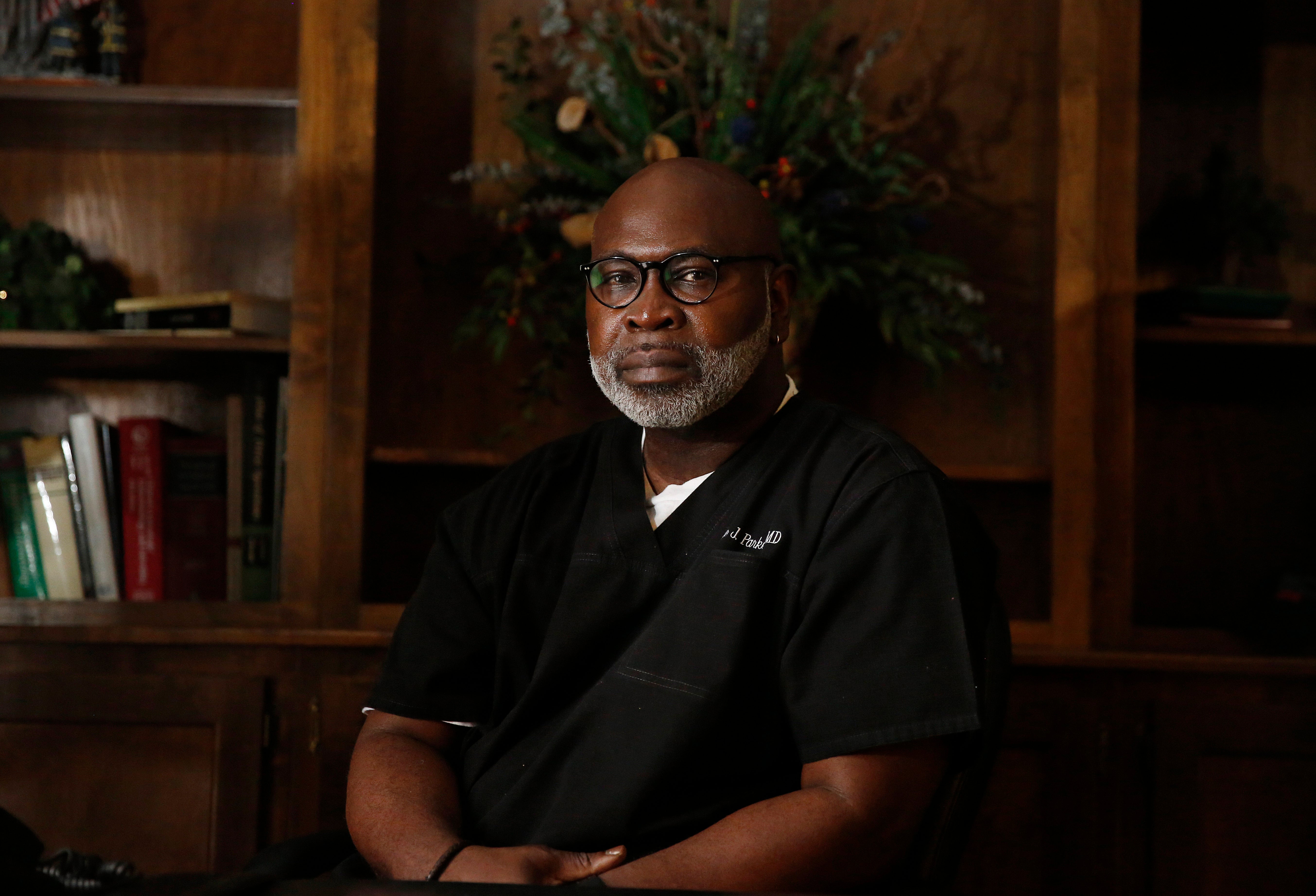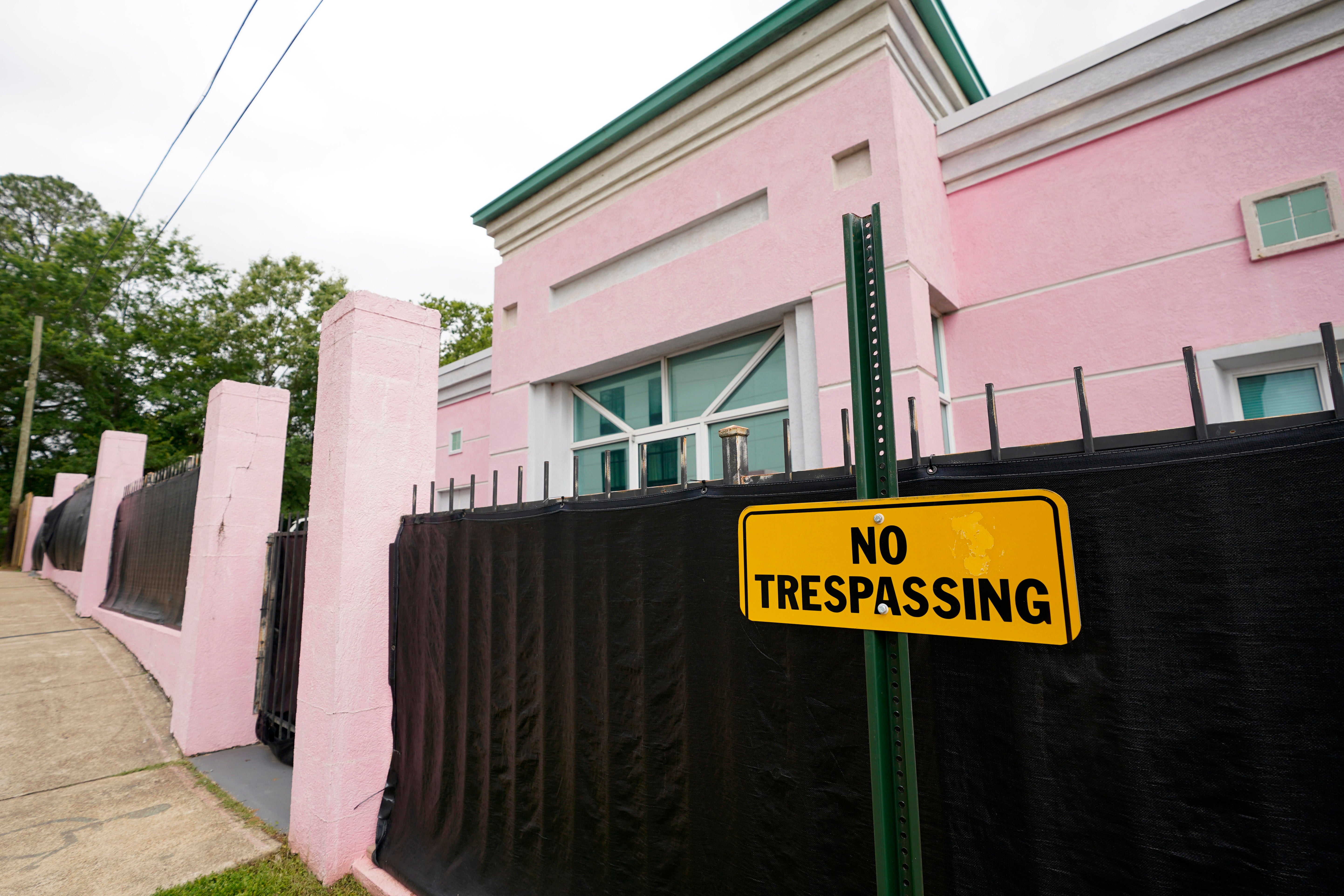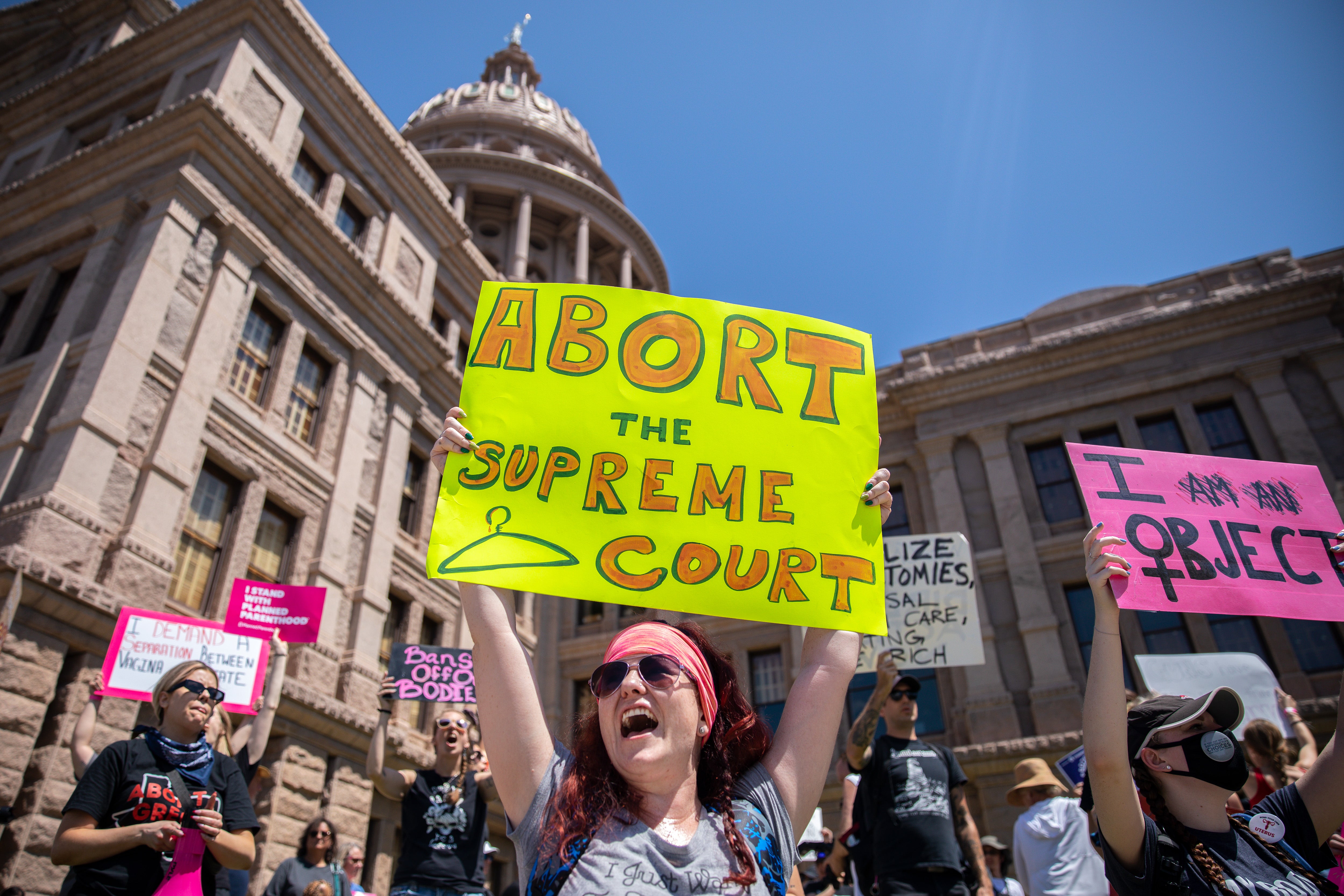Christian physician who performed 10,000 abortions says ‘more women going to die’ by scrapping Roe
For half his career, Dr Willie Parker opposed abortions. He tells Andrew Buncombe what changed his mind


Your support helps us to tell the story
From reproductive rights to climate change to Big Tech, The Independent is on the ground when the story is developing. Whether it's investigating the financials of Elon Musk's pro-Trump PAC or producing our latest documentary, 'The A Word', which shines a light on the American women fighting for reproductive rights, we know how important it is to parse out the facts from the messaging.
At such a critical moment in US history, we need reporters on the ground. Your donation allows us to keep sending journalists to speak to both sides of the story.
The Independent is trusted by Americans across the entire political spectrum. And unlike many other quality news outlets, we choose not to lock Americans out of our reporting and analysis with paywalls. We believe quality journalism should be available to everyone, paid for by those who can afford it.
Your support makes all the difference.Dr Willie Parker says he has provided women with abortions, not despite his faith, but because of it.
As both a physician and a Christian, he believes the best way to literally act in good faith, is to help those in need, and not to turn them away.
In his reading of the Bible - he calls it “reading while Black” - God appears on the side of the oppressed, not the oppressor.
For the past decade, the 59-year-old has travelled across the South, to places such as Alabama, Arkansas, Georgia and Mississippi, states with perhaps just a lone clinic providing abortions, and performed such procedures. He has confronted threats and “psycho-terrorism”, and protesters gathered outside his apartment.
Now, he says, he and other doctors who have flown into those states to help women, will not be able to do so. With the overturn of Roe, legal abortion will be confined to perhaps 13 states, and a woman’s ability to access such care will be a post code lottery.
In the meantime, more women will die giving birth, and women will start to die from abortions. Hitherto - contrary to the claims of anti-abortionists - the procedures have been safe, but in some places they will be pushed underground, or be self-administered, or become otherwise dangerous.
“Maternal mortality is already on the rise in this country and it’s disproportionately higher for black women,” he tells The Independent.
“The portion of maternal mortality that’s going to be attributable to abortion is going to rise. There’s very few, if any, people dying from unsafe abortion, and those numbers will rise.”
He adds: “Maternal morbidity - women injuring themselves trying to use methods to end pregnancy by their own hand - will also rise.”
In the first part of his career in obstetrics he was opposed to abortions for religious reasons, and would refer the case to another doctor.
Parker, a graduate of Berea College in Kentucky, and who grew up in the South and in a Christian household, says he made up his mind about the both need for abortions, and the ethical questions about preforming ones, after two separate cases of young girls or women, coming to him for help after being raped by their father.
One was a 19-year-old woman - “a really nice, smart girl” - who was part of the migrant farming community in the Central Valley of California. As it was, he was not then trained to perform an abortion but started thinking it was something he needed to equip himself for.
“I was so moved by her story. I felt like if I knew how to provide the abortion I would have,” he says.
“The absolutism around, those circumstances where abortion is justifiable, in terms of me providing them, just started to melt away. That was the first time where I said, ‘If I could do this abortion, I would’.”
The second incident happed in Illinois.
This time, the person in front of him was just 12, and she was also pregnant after being raped by her father.
The girl and her mother wanted her to have an abortion, and Parker agreed to provide one, the first time he had done so.
He discusses the encounter in his 2017 book, Life’s Work: A Moral Argument for Choice.
And it details how in 2009, he decided to stop his general obstetrics practice, to focus solely on providing abortions to women. Such has been the demand, he can see up to 50 women on the most demanding of his days, adding up to 1,000 procedures a year.
He says it is a “conservative estimate” that he has performed 10,000 abortions in his career. He says at times, he may been advised not to talk about the total number given that anti-abortion activists may seek to dismisses him as a “mass murderer” rather than simply a “murderer”.
But he also says the total number is not the thing he focusses on; he believes every single person he helps is equally critical.
“One thing people don’t talk about enough is how happy so many women are to have had their abortions,” he writes in his book.
“No one wants to walk into an abortion clinic, to be sure, but many, many women are grateful and relieved when it’s over.”
The move to overturn Roe, which came when as a part of a review of a Mississippi law from 2018 that sought to ban all abortions after 15 weeks weeks and was struck then by an appeals court before before considered by the justices, had the backing a well organised and funded players on the conservative right.
As with activists in Texas who in the spring of last year passed a law banning abortions after six week, the broader goal was not simply the limiting of procedures in the state, but for a challenge to be considered by the 6-3 conservative court, and for it to overturn Roe, which has been in place since 1973.
That is what has happened, says, Parker, with the situation in the country being as it was on January 21, 1973, the day before the passage of Roe. Now there will no federal guarantee of abortion, rather it will be up to the states. An estimated 13 states will be “abortion havens”, but they will also likely become freshly targeted by anti-abortion activists.
“The overturn of Roe won’t outlaw abortion nationally, the way there’s national abortion policy in South America and El Salvador,” he says. “It’s got to be it’s gonna devolve to the states and go what it was pre-Roe, pre 1973, which meant was means that even more so than already women’s, and pregnant, people’s access to abortion care, would depend on their zip code where you live.”
He adds: “You’ll be able to say thank my lucky stars, I live in California, but if you live in Mississippi versus California, you know, your life chances of being able to control your reproduction are greatly diminished.”

He says Black women and women of colour will be disproportionally impacted by this: more than 55 per cent of of Black women live in the South.
“If you think about all of the states, where they’re where they have trigger bans, or where they’ve already greatly curtailed, abortion car - Arkansas, Mississippi Alabama, Georgia - there’s gonna be a a whole region of the country that has no access,” he says.
“Now it’s going to be instead of a woman trying to get from Mississippi to Arkansas, when she’s more 15 weeks. She’s going to have to try New Mexico or to Illinois.”
Parker says while the efforts to try and restrict access to abortion are often set again the framework of faith or religious beliefs, it is more fundamentally part of a systematic effort to control women and their reproductive choices.
He writes in his book, he writes: “It is my personal belief that the abhorrence of abortion expressed by the men who place themselves at the barricades in front of abortion clinics is actually a misplaced horror at women’s sexual autonomy”.

He adds: “It stands to reason: women’s sexual independence is the thing that men have always wanted to control. But for the women in the abortion clinic waiting room, the sex itself is history and totally beside the point. They are here to pursue their lives.”
He tells The Independent it is more more effective and far more sinister - causing even himself to be opposed to abortion for much of his career, if it packaged as part of the church, or received belief.
He says it took a long time to see that. For a large part of his medical career and training, which included graduating from the Harvard School of Public Health, he was opposed to abortion because of his beliefs.
“What I came to conclude was that the ways in which sacred text was made to fit a particular political agenda of people claiming Christianity, was nothing more than the the patriarchal customs and norms of controlling the fertility and reproduction of women,” he says.
That may to some extent explain the focus of these past 12 years or so, helping women as best he can, and helping as many women as best he can.
“What the most essential aspects of Christianity became, was a notion of religion and a belief system of love, compassion, and justice,” he says.
“And so, Christianity for me, as I explored it in the context of a woman’s health and thinking about what justice and compassion meant to somebody with an unplanned pregnancy, gave my liberation to to reconcile my faith and my chosen craft.”
He adds: “I began to ask ‘What does compassion look like for someone who needs abortion care’.”
Join our commenting forum
Join thought-provoking conversations, follow other Independent readers and see their replies
Comments